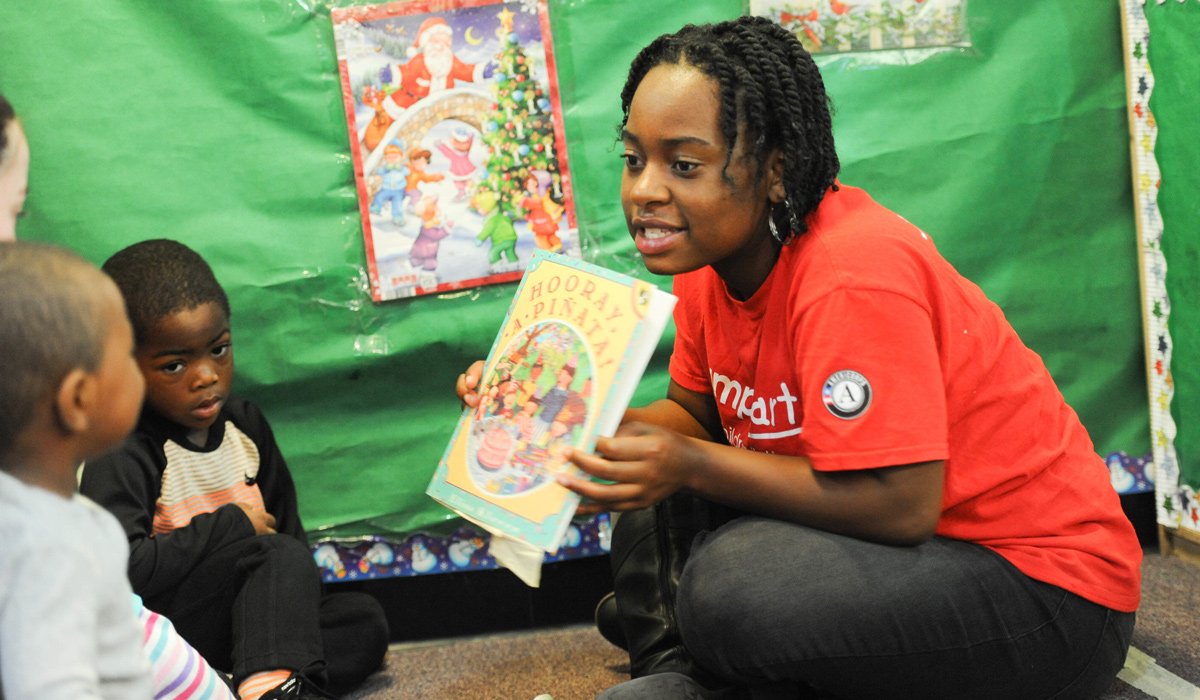

First-year student Zaniya Lewis has many talents. She’s a good basketball player — she played point guard on her high school team — but it’s her writing skill that has taken her places in the past year. First, after winning an essay contest sponsored by the National Basketball Players Association, she traveled to South Africa, where she joined star players in coaching at a children’s basketball clinic.
Then she won another essay contest, sponsored by the magazine Seventeen. She and another young woman were chosen to interview Michelle Obama at the White House, and to be photographed with her for the magazine’s cover. On the morning of the big day, Lewis and her co-winner were professionally styled (coiffure, manicure, make-up) and outfitted with designer clothes and accessories.
When they nervously walked in their borrowed shoes into the Green Room of the White House, the First Lady greeted them with a hug. With the ice broken, they went to work interviewing their host. Their conversation focused on coping with adversity in a world that is not always welcoming for women and girls, particularly for women and girls of color.
“Everyone gets discouraged, but you keep going. I’m not going to stop.”
Lewis’s winning essay described her experience going from a relatively diverse middle school to a high school in which she was the only African-American girl in her grade. As she struggled to find her niche, her talent for leadership asserted itself and she started the Kindness Project, a student club dedicated to serving others.
It was this commitment to service that prompted her to apply to Catholic University, where, as a politics major, she’s taking courses that address the dignity of the person, consistent with the Catholic tradition.
Last semester John Hogan, author of the book Credible Signs of Christ Alive: Case Studies from the Catholic Campaign for Human Development, addressed Lewis’s Intro to American Government and Politics class. Hogan affirmed her belief that an effective politician is involved in community activism and service.
After graduating she might join the Peace Corps and then she wants to work in public service or the government. She also sees law school as a possibility and eventually hopes to become president of the United States.
She finds life at Catholic University rewarding, but college is not without its challenges. “I get discouraged sometimes. Everyone gets discouraged, but you keep going. I’m not going to stop.”